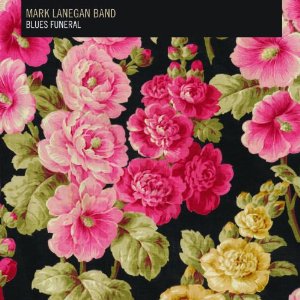As the collaborator of choice for any number of bands and producers – Queens of the Stone Age, The Gutter Twins, Soulsavers, Unkle and Isobel Campbell have all benefited from his growling baritone – Mark Lanegan is an artist only too quick to hitch his wagon to someone else’s horse. A disingenuous view at best, it also belittles Lanegan’s voice – a weapon that’s grown in stature, depth and authority since he first took up singing duties with Screaming Trees back when Kurt Cobain was suffering the indignity of mopping up his alma mater’s toilets. If Lanegan’s collaborations since the demise of his old band at the tail end of the 90s have shown us anything, it’s that he’s not a singer to be tied down by a narrow musical worldview.
Though Lanegan baulks at the suggestion, he’s always been a soul singer in the widest definition of the phrase. His is a voice that tells the tales of horrors and things that should not have been seen, much less done, and has lived to come out of the other side wizened, if not entirely unscarred. Here it’s impossible to remain unmoved as he strains, “Baby, don’t it feel so bad?” though several layers of emotion and sinew on the hypnotic groove of ‘Bleeding Muddy Waters” gothic Americana.
But Lanegan is making far greater brushstrokes here than at any point in his lengthy career. The starting off point remains his persona of the squint-eyed stranger, ready to grant life or death on the turn of a card, and the sonic framework of opener ‘The Gravedigger’s Song’ is still rooted in the filthy scuffed-up blues that’s central to his work. But Blues Funeral – his seventh solo album – finds Lanegan pulling together the strands from the musical adventures he’s engaged in since the release of 2004’s Bubblegum, to stunning effect.
Aided and abetted by producer Alain Johannes and including contributions from former Afghan Whig Greg Dulli, Josh Homme and one-time Red Hot Chili Peppers tubthumper Jack Irons, among others, Blues Funeral‘s open door policy sees Lanegan stirring together electronica, processed beats, spaghetti westerns, southern 60s soul, folk and all-out sonic onslaughts to blend his most satisfying and heady brew to date.
His ambitions are realised as early as ‘Gray Goes Black’, where circular guitar arpeggios are driven by insistent and metronomic rhythms, but it’s with ‘Ode to Sad Disco’ that Lanegan truly hits paydirt. Fusing his love of New Order (their 1985 single, ‘Subculture’, is his phone’s ringtone) with the lengthy shadows that shroud his stentorian rumble, this is disco noir of the highest – ahem – order.
Likewise, the Catholic imagery of sin, ritual and redemption of ‘Harborview Hospital’ is played out against a haunting backdrop of electronic precision and grand, glacial keyboard sweeps that serve to heighten the sense of drama contained within. Elsewhere, the collision of electronica and Kraftwerk influences on closer ‘Tiny Grain Of Truth’ leaves a deep impression of an artist transcending his influences to create a new template of his own.
These excursions into previously uncharted waters highlight the occasions Lanegan moves back into his previous comfort zone. Josh Homme’s squalling guitar snakes its way though the pounding crunch of ‘Riot In My House’ while the hook-driven ‘Quiver Syndrome’ sees Neu! driving headlong into The Rolling Stones at high speed.
Blues Funeral is the sound of an artist freeing himself of expectation and convention, and in the process has delivered the finest work in Lanegan’s already impressive canon. Moreover, this is an album that will likely be spoken of reverential terms just as much in years to come as it will at this year’s end.


